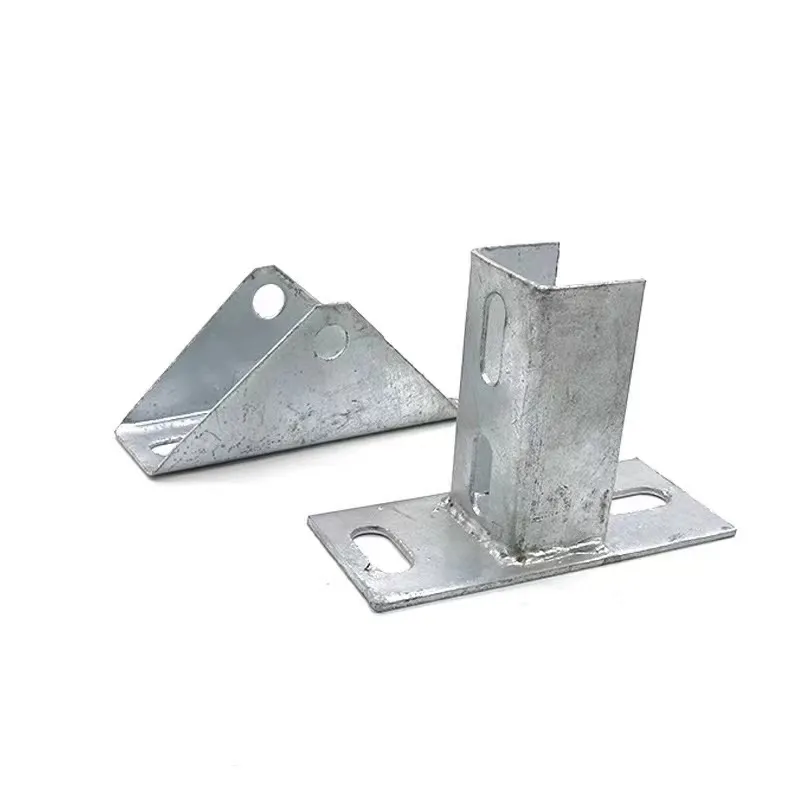

Understanding the Benefits and Applications of Metal Bolts in Various Industries
Dis . 11, 2024 09:54 Back to list
Understanding the Benefits and Applications of Metal Bolts in Various Industries
The Importance of Metal Bolts in Modern Engineering
In the realm of construction and manufacturing, metal bolts play a critical role in ensuring the integrity and stability of structures and machines. As fundamental components, they are used to fasten objects together, providing strength and durability. This article delves into the various types, materials, applications, and benefits of metal bolts, highlighting their significance in modern engineering.
Types of Metal Bolts
Metal bolts come in various types, each designed for specific applications. The most common types include hex bolts, carriage bolts, lag bolts, and shoulder bolts.
1. Hex Bolts These are probably the most widely used type. They have a hexagonal head and are often used with a nut. Their design allows for easy tightening and loosening with a wrench.
2. Carriage Bolts With a rounded head and a square neck that prevents rotation, carriage bolts are ideal for fastening wooden structures. They are commonly used in outdoor furniture and playground equipment.
3. Lag Bolts These are large, heavy-duty bolts used in construction, particularly for wood-to-wood connections. Their design accommodates the need for superior grip and strength.
4. Shoulder Bolts Useful in applications requiring sliding or rotating motion, these bolts have a shoulder that creates a pivot point or bearing surface.
Each type has unique features suited for specific applications, making it crucial for engineers to choose the appropriate bolt for their projects.
Materials Used in Metal Bolts
The performance and longevity of metal bolts largely depend on the materials used in their construction. Common materials include
1. Steel Most metal bolts are made from steel, prized for its strength and durability. It can be treated with coatings like zinc plating to enhance corrosion resistance.
metal bolt

2. Stainless Steel For applications in corrosive environments, stainless steel bolts are the preferred choice. Their inherent resistance to rust and corrosion is valuable in industries such as food processing and marine engineering.
3. Aluminum Lightweight yet strong, aluminum bolts are often used in aerospace applications where weight reduction is critical. They also resist corrosion but may not offer the same load capacity as steel.
4. Alloys Various metal alloys are also utilized to create bolts with specific properties, such as high strength or heat resistance, catering to specialized engineering needs.
Applications of Metal Bolts
Metal bolts are ubiquitous in numerous industries, including construction, automotive, aerospace, and manufacturing. In construction, they are essential for connecting steel beams, attaching fixtures, and assembling frameworks. In the automotive industry, they secure engines, brakes, and body parts, ensuring vehicle integrity and safety. The aerospace sector relies on specialized bolts that can withstand extreme temperatures and pressures, crucial for aircraft operation.
Moreover, many manufacturing processes involve the use of metal bolts for assembly lines, machinery, and equipment. Their versatility and ability to withstand various conditions make them indispensable tools in modern engineering.
Benefits of Using Metal Bolts
The primary benefit of using metal bolts is their strength and reliability. Properly installed bolts can create robust joints that bear significant loads and resist fatigue over time. Additionally, the ability to disassemble metal structures easily allows for maintenance, repair, and modification, making bolts a practical choice in design.
Furthermore, metal bolts are cost-effective. They are widely produced and available, making them an economical choice for both small businesses and large corporations alike. Their standardization across industries also simplifies inventory management and procurement processes.
Conclusion
In summary, metal bolts are vital components in modern engineering, contributing to the safety, strength, and effectiveness of various applications. Understanding the different types, materials, and benefits of these fasteners allows engineers and builders to make informed decisions that enhance the quality and longevity of their projects. As technology advances and new materials are developed, the role of metal bolts will continue to evolve, solidifying their place as a cornerstone in construction and manufacturing.
Latest news
-
Premium Self Tapping Metal Screws: Strong & Easy Install
NewsAug.02,2025
-
Premium Fasteners Manufacturer | AI-Driven Solutions
NewsAug.01,2025
-
Hot Dip Galvanized Bolts - Hebei Longze | High Strength, Corrosion Resistance
NewsAug.01,2025
-
High-Strength Hot Dip Galvanized Bolts - LongZe | Corrosion Resistance, Custom Sizes
NewsAug.01,2025
-
Best Self Tapping Screws for Drywall - Fast & Secure Installation
NewsJul.31,2025
-
High-Strength Hot Dip Galvanized Bolts-Hebei Longze|Corrosion Resistance&Customization
NewsJul.31,2025

